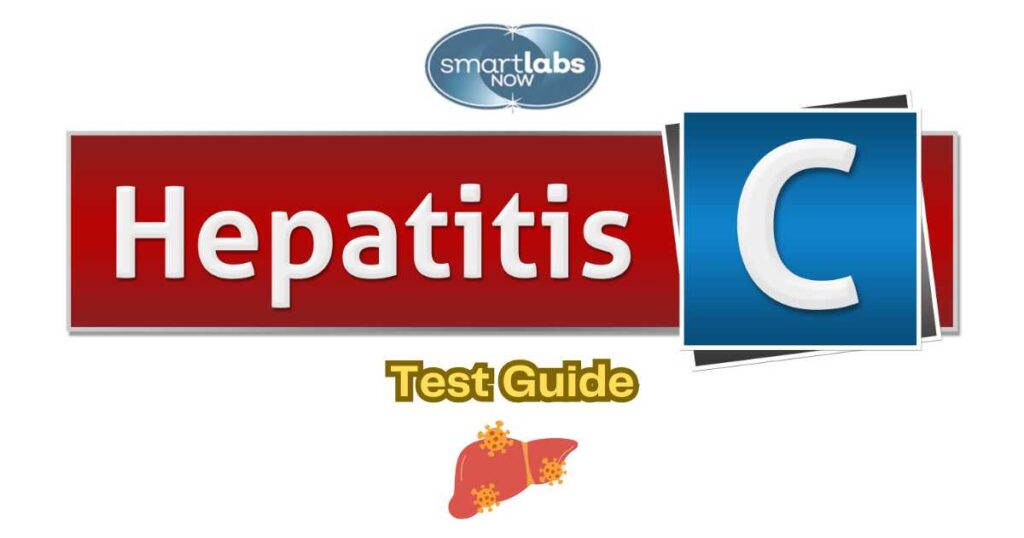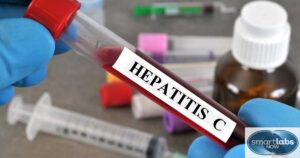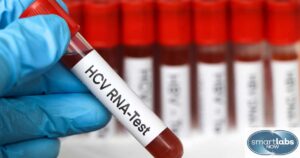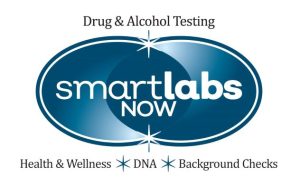
Hepatitis C is a viral infection that affects the liver, often leading to serious health issues like liver cirrhosis, liver failure, and cancer if left untreated. The good news is that Hepatitis C can be detected and treated effectively with modern testing and medication 🙂.
In this article, we will break down everything you need to know about Hepatitis C testing—who should get tested, why testing is crucial, the methods available, and how to interpret results.
If you’d like to go straight to booking your test, sign up here:

The Hepatitis C test is primarily a blood test used to detect the presence of the Hepatitis C virus (HCV) or antibodies produced by your body in response to the infection.
The HCV antibody test is the first-line test for determining whether a person has ever been exposed to the virus.
If the antibody test results are positive, further tests, such as HCV RNA testing, will confirm whether there’s an active infection by measuring the virus’s actual presence in the bloodstream.

Hepatitis C testing is recommended for certain high-risk groups, as the virus can be transmitted in several ways. The following individuals should consider testing:
Before 1992, blood transfusions and organ transplants were major risk factors for Hepatitis C, as screening methods for blood donors were not fully developed. Anyone who received blood products before this year should get tested.
Hepatitis C can be passed from mother to child during childbirth. Children born to infected mothers have a risk of contracting the virus.
People with bleeding disorders, such as hemophilia, who received clotting factor concentrates before 1987 may have been exposed to HCV.
Incarcerated individuals have a higher prevalence of HCV due to risky behaviors like injecting drugs and unsafe tattooing practices.
People from regions with high rates of HCV infection, such as certain parts of Africa and Asia, should be screened.
Sharing needles or syringes can spread Hepatitis C rapidly. Even one instance of injecting drug use is a significant risk factor.
Unexplained liver damage or elevated liver enzymes may signal Hepatitis C, prompting the need for testing.
Accidental exposure to infected blood through needle-stick injuries puts healthcare workers at risk of contracting HCV.
Organ transplants performed before reliable screening methods were implemented in 1992 pose a risk.
Those living with HIV are more likely to also have HCV due to shared transmission routes.
Though rare, sexual transmission can occur, making it vital for sexual partners of HCV-positive individuals to get tested.
Unregulated tattooing or piercing practices can lead to exposure to HCV through contaminated needles.

Early detection of Hepatitis C is crucial for preventing severe liver damage and the spread of the virus. Here’s why testing matters:
Hepatitis C testing is the gateway to early intervention, preventing liver damage, liver cancer, and potential perinatal exposure during childbirth.

Getting tested for Hepatitis C is now easier and more affordable than ever. Testing options include:
Labs such as Smart Labs Now offer reasonable rates for HCV testing. Private lab testing is affordable, quick, accurate, and stress-free 🙌.
Virtual consultations can provide easy access to testing options and follow-up care.
Some services allow individuals to collect blood samples at home, offering privacy and convenience. Call us at ☎ (503) 477-7748 to confirm.
A simple blood draw at a lab or clinic is all that’s required.
Programs exist to help cover testing costs, especially for those without insurance.
In some regions, free testing kits are available to encourage screening. However, these can be notoriously unreliable and require lab testing for full confirmation.
Most insurance plans, including Medicare, cover Hepatitis C testing for at-risk individuals.
Many community health clinics offer free or low-cost testing. But be prepared for long waiting times and queues 😬.
Resources for those diagnosed with HCV can provide emotional and medical support.

Several health authorities provide recommendations on Hepatitis C testing:

There are multiple methods for diagnosing Hepatitis C:
– HCV RNA Test: Confirms an active infection by detecting the virus’s genetic material.
– HCV Antibody Test: Identifies prior exposure to the virus.
– Genotype Testing: Determines the strain of HCV, which can influence treatment decisions.
– Enzyme Immunoassay (EIA): A commonly used antibody test to detect HCV.
– Polymerase Chain Reaction (PCR): Used to measure viral load and confirm active infection.
– At-home Tests: Already discussed.

The testing process typically follows these steps:
1. Initial Antibody Test: A blood sample is tested for HCV antibodies.
2. Follow-Up RNA Test: If the antibody test is positive, RNA testing will confirm active infection.
3. Genotype Testing: Determines the specific type of HCV to guide treatment.
4. NAT Testing: Detects the virus’s genetic material, useful for confirming infection in its early stages.
Patients may opt for at-home testing or visit a healthcare provider for sample collection.

Understanding test results is crucial for the next steps:

If you test positive for Hepatitis C, it is essential to take the following actions:
– Confidential Reporting: Test results are typically reported to public health authorities, but patient confidentiality is maintained.
– Follow-Up Tests: Further diagnostic tests like PCR and liver function tests may be needed.
– Secure Email: Many providers offer confidential reporting through secure communication channels.
– Liver Disease Resources: Access to specialists and support groups is crucial for long-term management.

If you’re in Portland and concerned about Hepatitis C, Smart Lab Now offers affordable, accurate, and discreet testing options. Our quick, reliable service ensures you get the answers you need, whether you’re at high risk or just want peace of mind.
Book a test today for your health and your future 💖.
Please consult your primary care physician before engaging with any pharmaceutical, natural substances, or activity regimens mentioned or prescribed in this post. Smart Labs Now is not responsible for health or life outcomes based on the information or recommendations provided. This account does not serve as a substitute for professional medical advice/help.